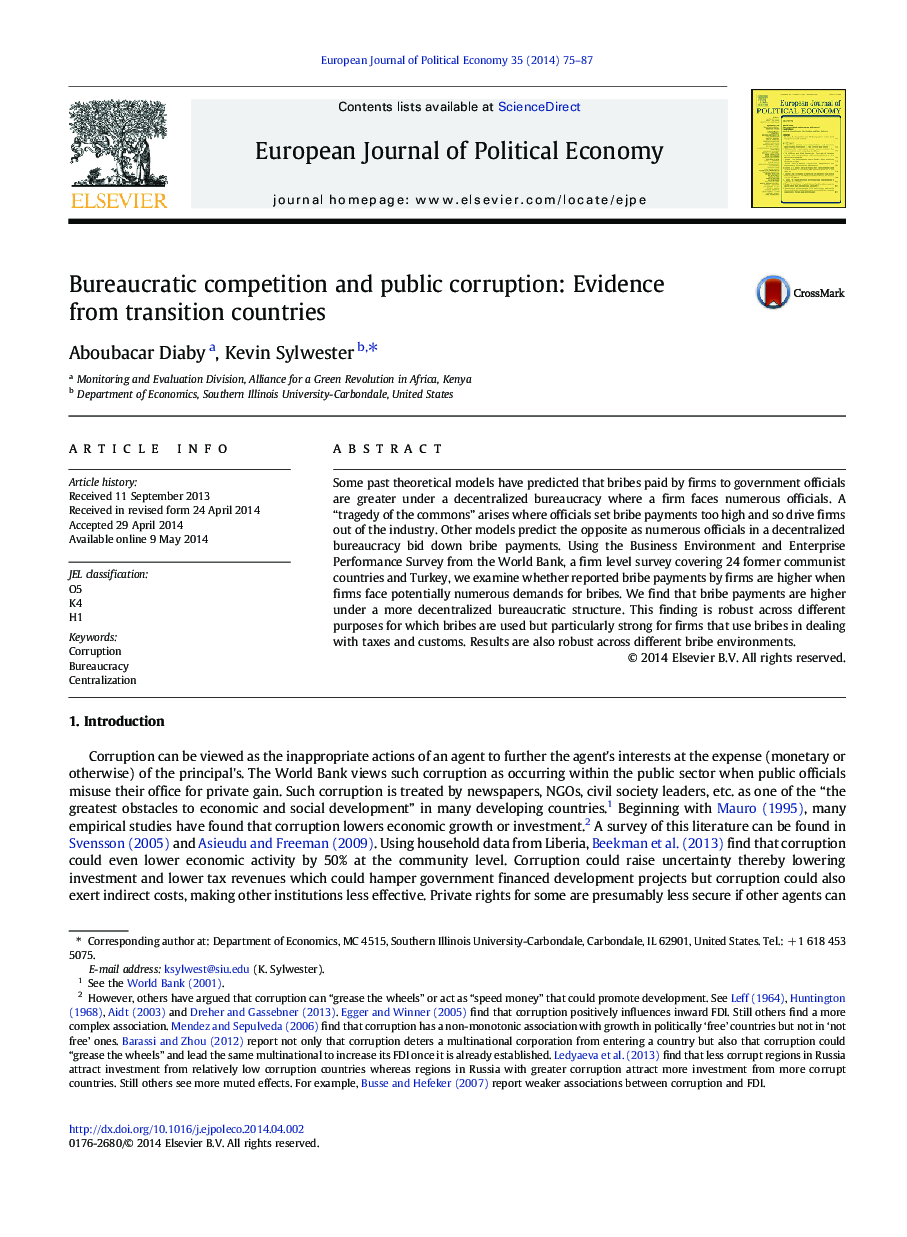| Article ID | Journal | Published Year | Pages | File Type |
|---|---|---|---|---|
| 5067985 | European Journal of Political Economy | 2014 | 13 Pages |
â¢We consider corruption at the firm level within post-communist countries.â¢We employ OLS, ordered probit, and interval regression methodologies.â¢Firms facing more centralized bureaucracies report less corruption.â¢Results are robust across different purposes for bribes.
Some past theoretical models have predicted that bribes paid by firms to government officials are greater under a decentralized bureaucracy where a firm faces numerous officials. A “tragedy of the commons” arises where officials set bribe payments too high and so drive firms out of the industry. Other models predict the opposite as numerous officials in a decentralized bureaucracy bid down bribe payments. Using the Business Environment and Enterprise Performance Survey from the World Bank, a firm level survey covering 24 former communist countries and Turkey, we examine whether reported bribe payments by firms are higher when firms face potentially numerous demands for bribes. We find that bribe payments are higher under a more decentralized bureaucratic structure. This finding is robust across different purposes for which bribes are used but particularly strong for firms that use bribes in dealing with taxes and customs. Results are also robust across different bribe environments.
